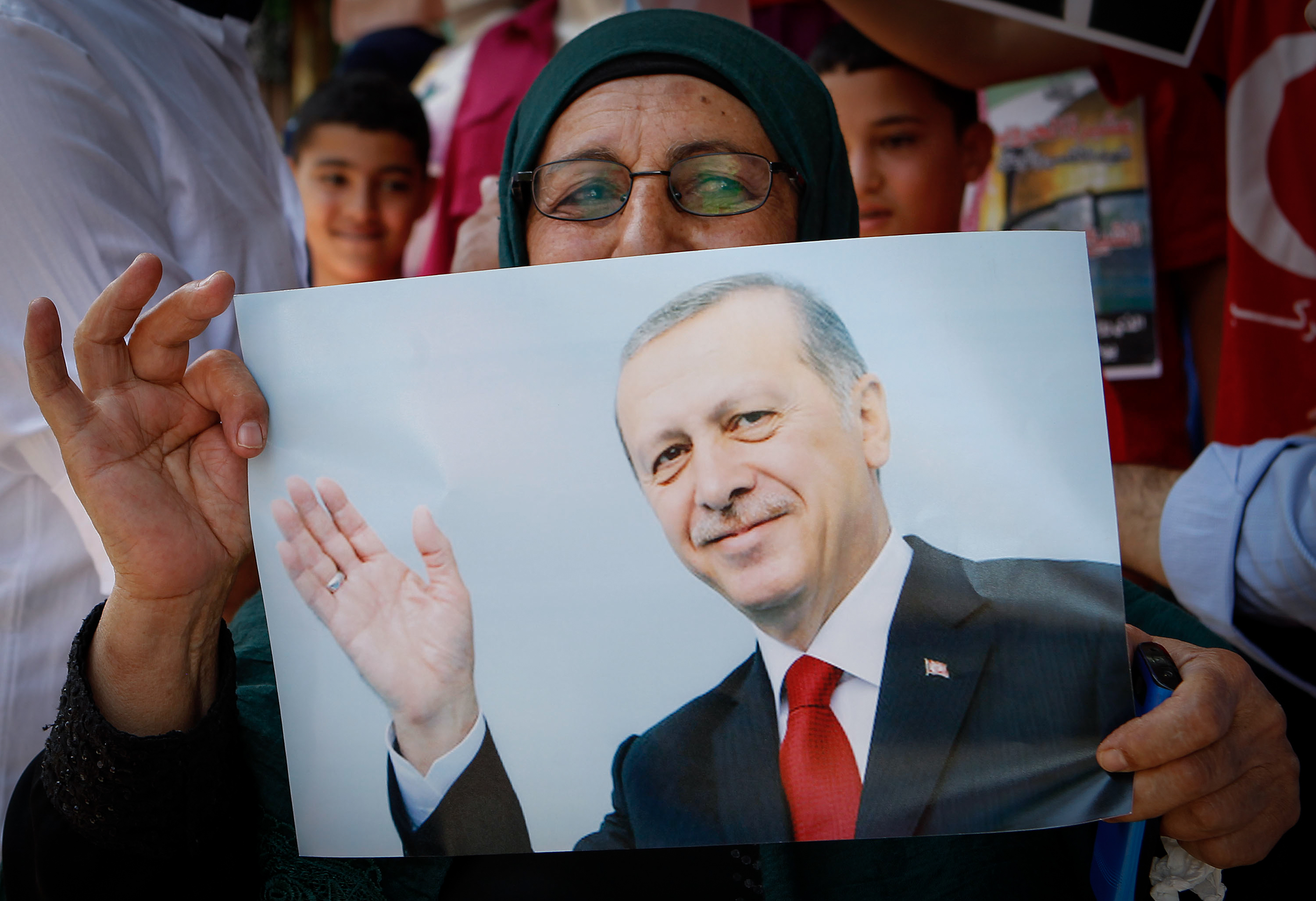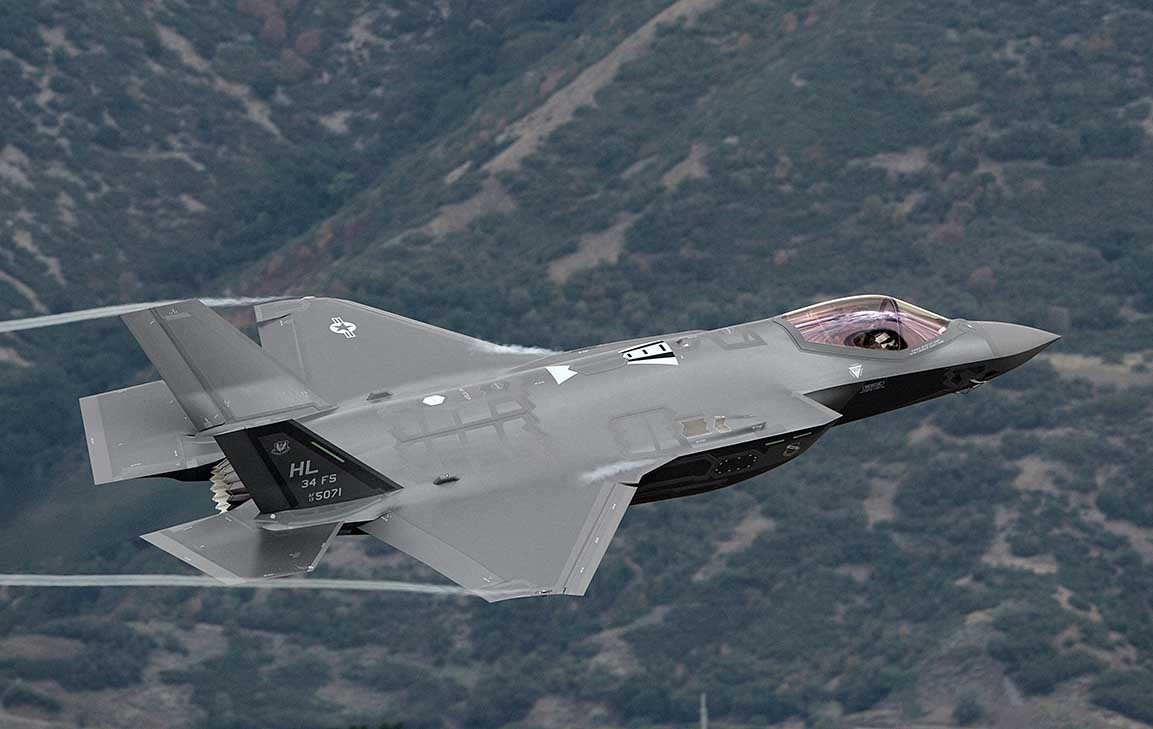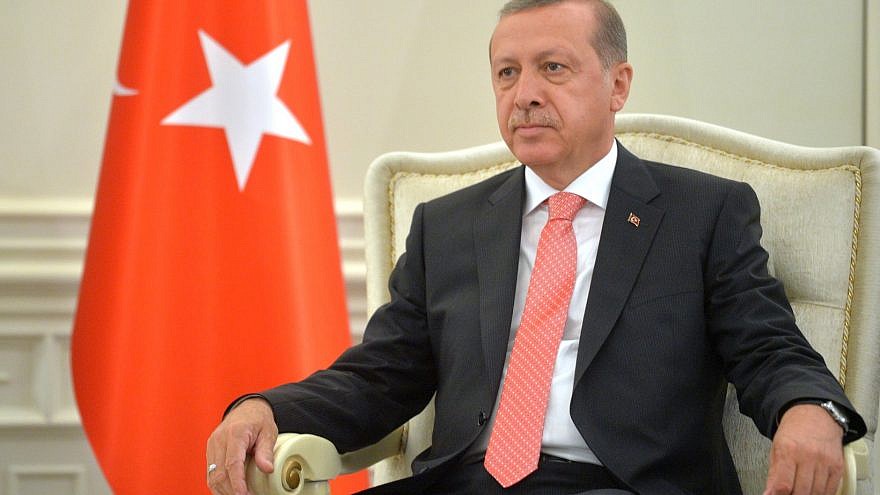Turkish President Recep Tayyip Erdoğan’s suffocating hold on power in Turkey, and the deterioration of the country’s democracy and Islamist-based foreign relations, is going to be tested in the national elections on June 24.
Israel, as well as many in Europe and the United States, will be cheering for Erdoğan’s demise, but leaders are all watching their words carefully since it’s likely that the Turkish strongman will continue in power for years to come.
Indeed, most of Turkey’s residents are conservative, and Erdoğan maintains a strong base of support. The current Turkish president drew a large crowd of thousands at a rally in southeast Turkey on Wednesday.
Aykan Erdemir, a member of the Turkish parliament from 2011 to 2015, and a senior fellow at the Washington-based Foundation for Defense of Democracies, told JNS that the June 24 elections “will be the least free and fair elections in the history of the Turkish Republic since the first free and fair elections in 1950.”
In addition to the uneven playing field and attempts at voter suppression, “there are also credible concerns about ballot-rigging,” added Erdemir.
“The campaign period has been particularly violent with numerous attacks against opposition candidates, gatherings and posters,” he said. “It is particularly telling that one of the six presidential candidates has to run from prison.”
Despite all the foul play by Erdoğan, he might lose not only the parliamentary majority, but be forced into a runoff election on July 8.
“The opposition has demonstrated resilience and resourcefulness by joining forces to build a broad alliance against Erdoğan’s one-man rule, and an opposition victory could defuse tensions in relations with the U.S. and the European Union, and bring Turkey’s drift from the transatlantic alliance to an end,” explained Erdemir.

Photo by Wisam Hashlamoun/Flash90.
Soner Cagaptay, director of the Turkish Research Program at the Washington Institute, told JNS that “Erdoğan is stacking the odds in his own favor to win: polls are held under a state of emergency; pro-Erdoğan businesses control around 90 percent of the media; the government can censor online content; and a new electoral law will staff election-monitoring bodies with government appointees, instead of the independent monitors in past elections.”
In an article for Sigma Insight Turkey, Cagaptay points out that Erdoğan’s biggest challengers comes from the main opposition Republican People’s Party (CHP) candidate Muharrem Ince and IYI (Good) Party leader Meral Akşener, who are observant Muslims, unlike past contenders who were easily labeled by Erdoğan and his supporters as leftist or “irreligious.”
Ince, in particular, has the ability to appeal to right-center voters, as well as his left base, added Cagaptay.
Still, Turkey’s president is not going to allow any risk of losing the vote and so is using other methods, such as using government social benefit payouts, to curry favor.
However, the economy is in bad shape and the opposition could unite against Erdoğan if a candidate fails to get more than 50 percent of the vote in the first round—meaning there would be a runoff, most likely Erdoğan against Ince.
Hay Eytan Cohen Yanarocak, a researcher specializing in Turkey at Tel Aviv University’s Moshe Dayan Center, told JNS said that Erdoğan will probably win the election in the second round.
However, in the parliamentary election, Yanarocak predicted that it’s possible that the Turkish president’s party would lose its parliamentary majority, saying “this would create a deadlocked system, which could lead to another election in the near future.”
Issues over the advanced F-35 fighter jet
Amid the buildup to the election, tensions have increased between the once-close NATO allies, Turkey and the United States. At the center of it has been an effort in Congress to block the sale the advance F-35 fighter jet to Turkey.
On Monday, the U.S. Senate voted to block the country from receiving the F-35 stealth fighter jet, though Turkey was still set to receive the planes on Thursday, CNN reported.
Erdemir noted that attempts in Congress to block the delivery of the F-35 fighter jets to Turkey result from Erdoğan’s imprisonment of U.S. Pastor Andrew Brunson on spurious charges, in addition to a move to purchase the S-400 air-defense system from a sanctioned Russian company.

“The first issue is easier to fix,” said Erdemir. “If Erdoğan allows the Turkish courts to carry out a free and fair trial in Brunson’s case, which is based on a ludicrous indictment, it could be dismissed easily.”
However, he continued, “it is more difficult for Erdoğan to take a U-turn on the S-400 issue, and he will probably go forward with the deal, expecting that the White House will have to approach the issue pragmatically and shield Ankara from congressional calls for sanctions.”
Yanarocak said the F-35 issue “has revealed the rift between Ankara and Washington.”
Turkey’s rumored purchase of the S-400 system would demonstrate the country’s rapprochement with Russia while relations with Greece and Israel remains tense.


























